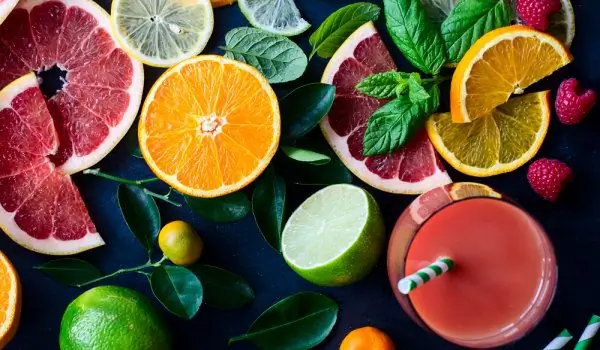2025 Author: Jasmine Walkman | [email protected]. Last modified: 2025-01-23 10:18
Many people think that wine can only be made from grapes. Every wine connoisseur has tried at least once wine made from fruit.
In fact, there is nothing strange about making fruit wine. In the more famous varieties of high quality wines, various fruits are invariably present as aromas.
For example, white wines are characterized by aromas of apple, peach, grapefruit, pear, banana, fig, melon, and even aromas of nuts and mushrooms.
In red wines, the most common aromas are strawberries, cherries, blackberries, blueberries, blackcurrants and even chocolate, pepper and mint.
From all that has been said so far, it is clear that the fruits go almost hand in hand with the wine. Then why not learn to make all-fruit wine.

In fact, it can be prepared from almost any fruit, and whether we take it as white, red or pink will depend only on the color we get.
The most common "red" fruit wines are made from raspberries, blackberries, strawberries, blackcurrants and blueberries, and the so-called "white" fruit wines are made from apples and pears. Here are 2 easy recipes on how to make your own fruit wine:
Raspberry wine
Preparation: Sprinkle about 3 kg of raspberries with 2 kg of sugar and mash them well. Then place them in a large glass container and fill them with 3 liters of water, about 2/10 of the container should be empty. Stir several times a day and store the dish at a temperature of 16-18 degrees.

After about 1 week, the mixture is filtered and the resulting juice is poured into jars to continue fermentation under a lid. After about a month and a half, the wine will begin to clear. It is then poured into bottles with corks, which are stored lying down in a cool position.
Dry apple wine
Preparation: What you need are only apples and sugar. Cut the apples into pieces and grind to a pulp.
About 150-200 g of sugar is added to 1 kg of porridge. Knead everything in a large enough container and leave covered to stay warm for 2 to 4 days.
Once the porridge floats, the juice is poured and the porridge is squeezed. To the juice thus obtained is added 100-150 g of sugar per 1 liter. Everything is closed in a suitable container and left to mature for about 20-25 days. It is poured into bottles without sediment and they close well.
Recommended:
A Legend About French Wines

Many years ago, a famous winemaker lived in France. When he realized that he did not have much time left in this world, he planted seven vineyards of different varieties. His idea was to make an aromatic wine from all of them, which he would leave as a legacy for his seven daughters.
Fruit Combinations For The Most Useful Fresh Fruit

Juices are a priceless treasure that nature has given us. They are an important source of vitamins and trace elements. And did you know that the largest amount of vitamins and trace elements is contained in freshly squeezed juice? But only 20 minutes after squeezing, their amount drops sharply, so it is important to drink the juice immediately.
Fruit Wines - A Delight For The Palate

How to make a wonderful fruit wine is a question that probably excites most housewives. We will not waste time, but we will reveal some recipes. Blueberry wine Process the blueberries 5 days after picking. Heat the fruit to boiling with 4 liters of water per 10 kilograms of blueberries.
Preparation Of Fruit Wines

Fruit wine can be made from a variety of fruits, as well as from plants that grow on watermelons. Watermelon and melon are suitable for making fruit wine. The preparation of fruit wine has its own peculiarities. When preparing the fruits, they have to be cut into large or small pieces, the stones must be removed.
Passion Fruit: A Passionate Fruit With A Wonderful Taste

Despite the fact that today on our shelves you can find many types of fruit that were previously exotic to us, some of them remain unusual and incomprehensible. One such fruit is passion fruit. Many people have found it in the list of ingredients in juices, yogurt and more.

